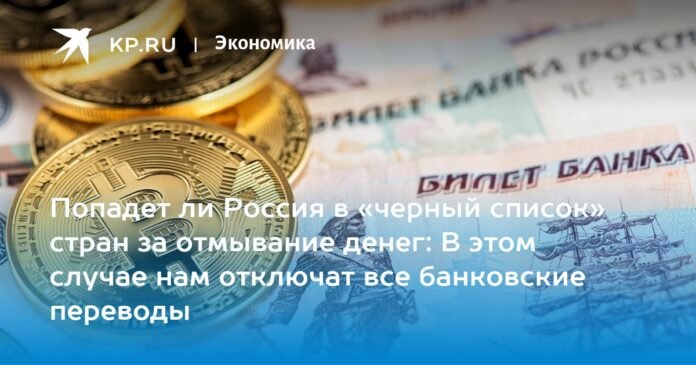Politico attaches list of our “sins”: friendship with Iran and North Korea, use of Telegram and cryptocurrencies
Photo: Shutterstock.
Next week, the International Anti-Money Laundering Task Force (FATF) will consider adding Russia to its blacklist. This was reported by the European publication Politico, citing a confidential source. Ukraine allegedly insists on this. And attaches a list of our “sins”: friendship with Iran and North Korea, use of Telegram and cryptocurrencies.
It is noteworthy that for many years the FATF has recognized Russia as one of the leading countries in the fight against money laundering and the financing of terrorism. Our legislation in this regard is one of the strictest in the world. As they say, ask any banker about Federal Law 115 (“On combating the legalization (laundering) of proceeds from crime and the financing of terrorism”) and see how validol reaches. However, under the pressure of geopolitics, our country was expelled from the FATF in February last year. Although no additional sanctions were introduced.
What does “blacklist” mean?
Basically, it is a black mark for financial institutions around the world. All bank transfers to and from countries included in the “blacklist” are prohibited. Furthermore, this applies to both companies and ordinary citizens. That is, it is almost impossible to export/import under such conditions. Sending money for personal purposes is the same. Countries have to find solutions. Currently, North Korea, Iran and Myanmar are on the FATF blacklist.
In general, Russia is still in a rather difficult situation. Many large banks are disconnected from the SWIFT international payment system. Counterparts in other countries fear secondary sanctions from the United States and the European Union, so they take a long time to coordinate money transfers. But it’s more of a gray list. Now there are 21 countries. Many of them are African. But there are also quite prosperous ones: Croatia, Bulgaria, Vietnam, the Philippines and even Monaco. Cooperation with such countries is not prohibited, but there is a requirement that transfers be carefully monitored to ensure that they are definitely not used for money laundering or terrorist financing.
– In fact, we are already on this “gray list”. All payments to and from Russia are treated with great suspicion and are all studied under a microscope, says investment banker Evgeniy Kogan.
No reason
In other words, including Russia on the “gray list” is unlikely to change anything radically. And most experts consider a direct jump to the “blacklist” unlikely. Firstly, because to lower the rating, the approval of the 55 member countries of the FATF is required. And among them are many of our partners, for example, China, India, Türkiye and South Africa. Secondly, this requires more compelling reasons than the use of Telegram and cryptocurrencies, which are now used by everyone. Furthermore, in recent years we have been monitoring money laundering even more strictly than before.
– The Russian anti-money laundering system has been and remains consistent with international standards. This was confirmed by both the FATF evaluation in 2019 and the evaluation carried out by international experts last year. Russia’s rating in three FATF recommendations was raised, and only one was downgraded to the level of “Partial Compliance” (due to insufficient legislative regulation of the sphere of circulation of virtual currencies). In addition, we note that since then two federal laws regulating the circulation of digital currencies have already been adopted in Russia, the Rosfinmonitoring press service explained to KP.
They clarified that the basis for inclusion in the FATF “blacklist” is the presence of strategic deficiencies in the anti-money laundering system. International experts have not identified them.

